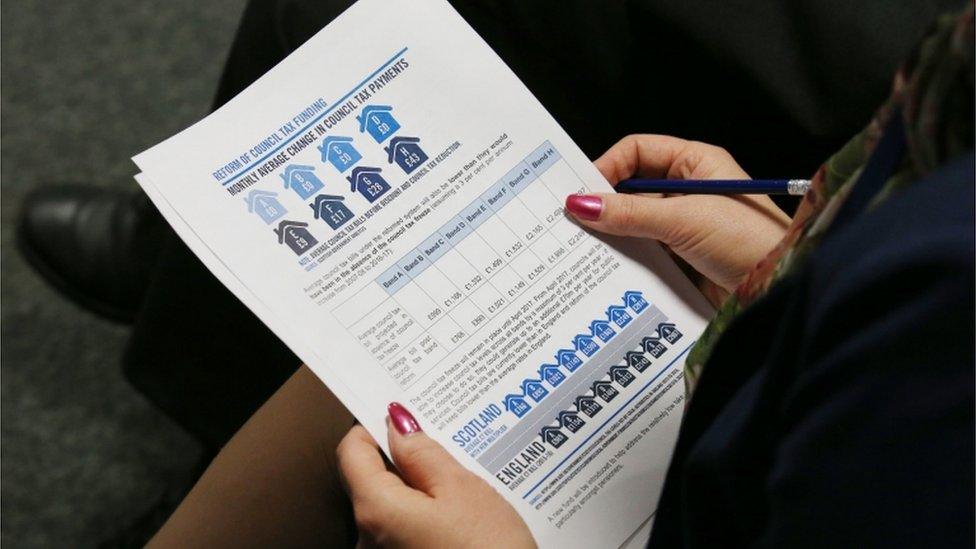Moray and Shetland agree 3% council tax rise
- Published
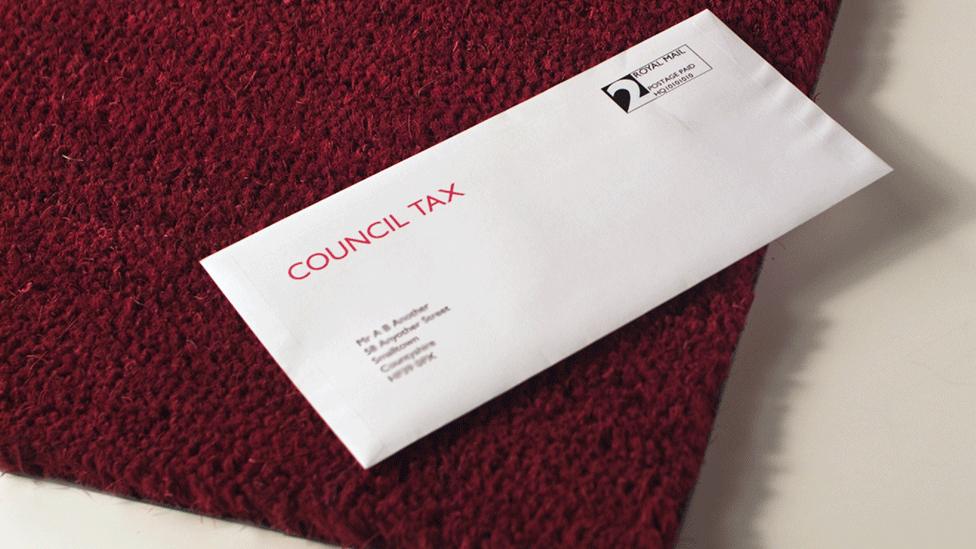
Most Scottish councils are set to increase the council tax for the first time since 2007
Moray and Shetland have become the latest Scottish local authorities to raise basic council tax by 3%.
Last week, Western Isles; Midlothian; Edinburgh; Borders and East Renfrewshire councils agreed 3% increases.
Aberdeenshire Council has also decided its council tax for 2017/18, opting for a 2.5% increase.
Local authorities are free to raise the basic rate of council tax by up to 3% for the first time since 2007.
Following a decision by the Scottish Parliament, higher band properties will pay more, regardless of possible changes to the basic level.
On Thursday, six more councils - South Lanarkshire; Highland; Renfrewshire; Inverclyde; Angus and Fife - will decide their council tax.
All 32 of Scotland's local authorities will have set their budgets by 2 March.
A number of councils yet to formally set their budgets have indicated they plan to continue the council tax freeze voluntarily.
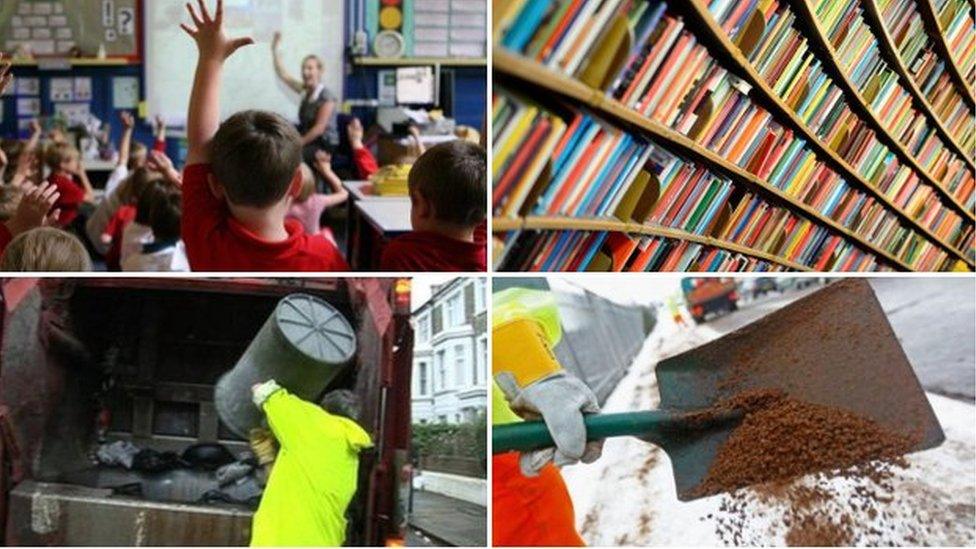
Councils receive funding for most of the services they provide from government grants
MSPs voted to increase the multiplier for the top four bands of council tax from April, meaning people in these properties will see their bills increase regardless of what their local councils decide to do.
The average Band E household will pay about £2 per week more than previously, while the average Band H household will pay about £10 a week more.
BBC Scotland analysis shows this will affect one in five properties in Moray, and 16% in Shetland.

How much?
2.5% rise - Aberdeenshire Council
3% rise - Western Isles; Midlothian; Edinburgh; Borders; East Renfrewshire; Moray and Shetland
All local authorities will have decided their council tax by 2 March

Scotland-wide, more than a quarter of households will be affected by the increased multiplier for Bands E-H. In two council areas, East Dunbartonshire and East Renfrewshire, more than half of properties are in these affected bands.
There has been a political row over how much funding councils are likely to receive from the Scottish government in the coming year.
Finance Secretary Derek Mackay's original draft budget included a cut to the core council grant, but he argued that extra funding going directly to schools and health and social care services meant "local services" would actually be boosted.
An extra £160m was subsequently added to the council allocation by Mr Mackay's budget deal with the Greens, although some opposition parties argue that councils are still being left out of pocket.
Holyrood's local government committee said the budget allocation was "very difficult to follow", noting that it was "essential" that MSPs were clear on "exactly how much money local authorities can be expected to receive", demanding "greater transparency", external from the government.
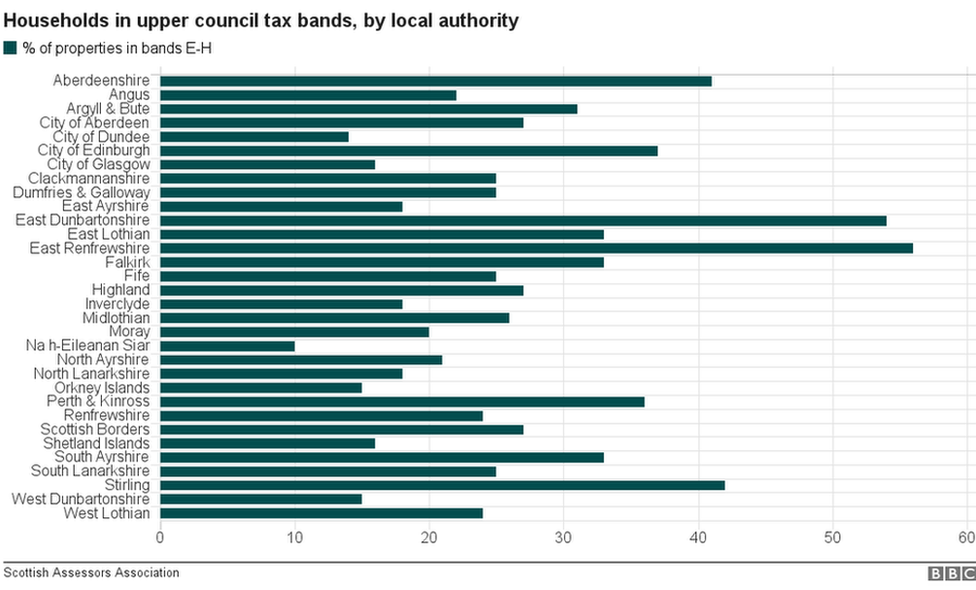
- Published9 February 2017
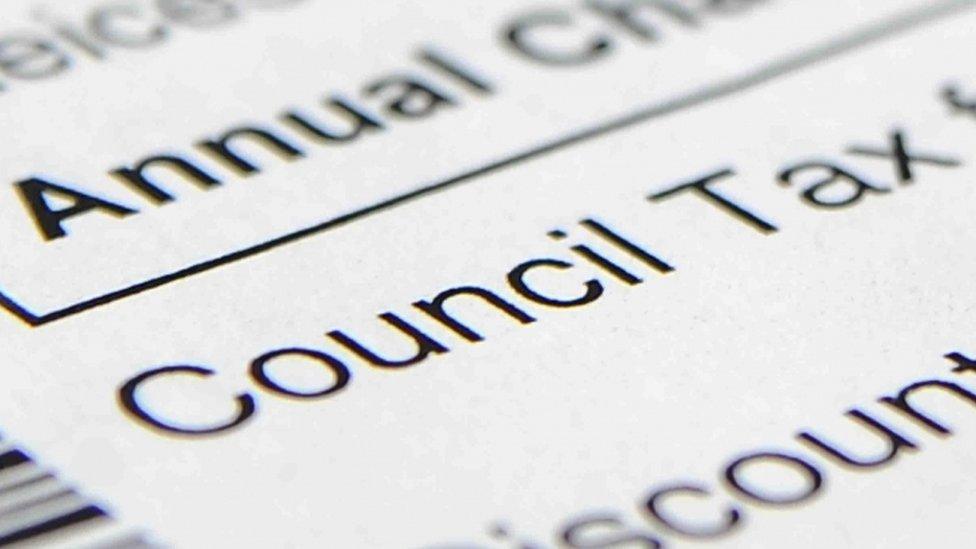
- Published2 March 2017

- Published3 November 2016
